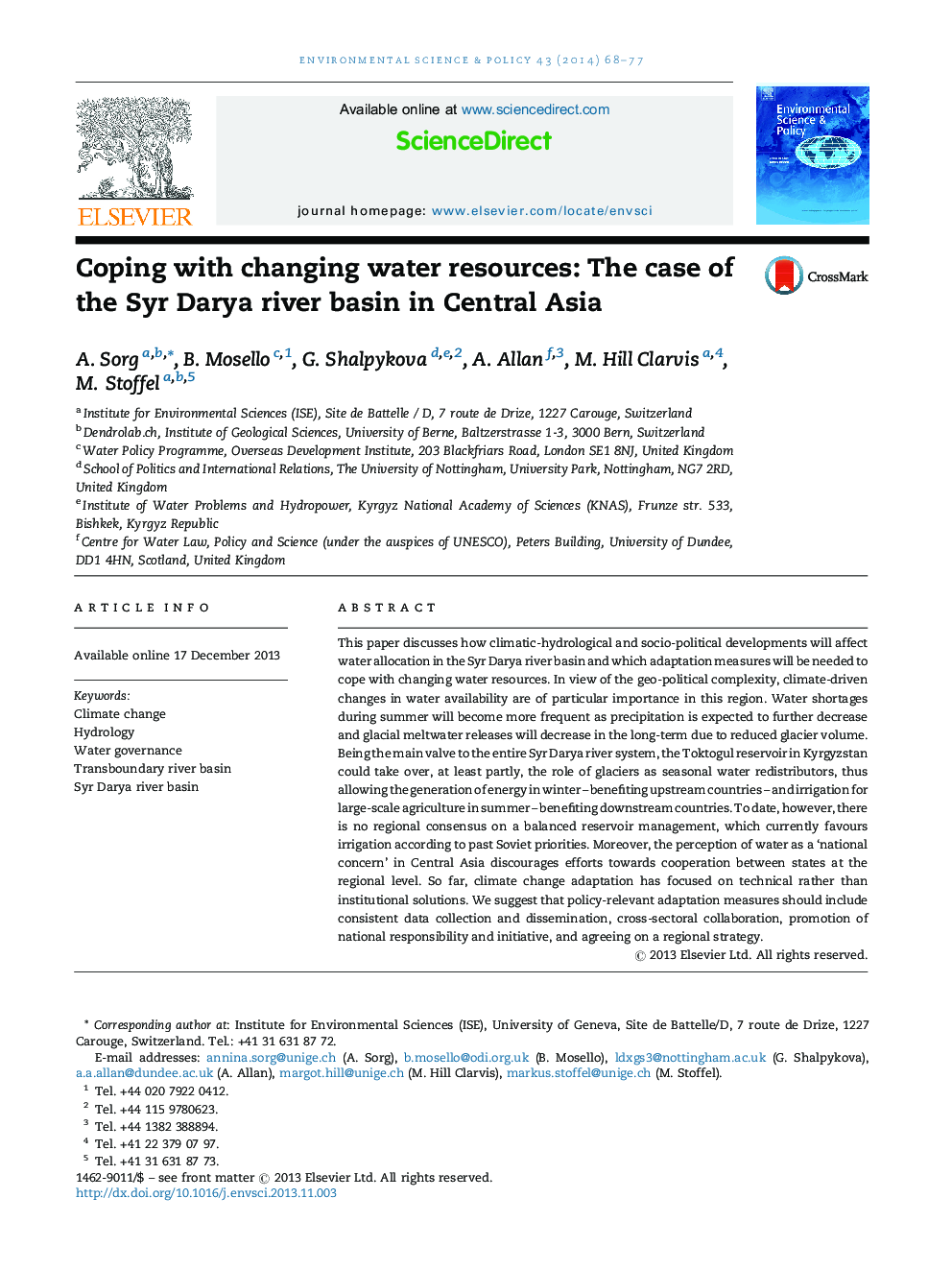| کد مقاله | کد نشریه | سال انتشار | مقاله انگلیسی | نسخه تمام متن |
|---|---|---|---|---|
| 1053549 | 1485063 | 2014 | 10 صفحه PDF | دانلود رایگان |
• Water shortages during summer will become more frequent.
• Reservoirs could take over the role of glaciers as seasonal water redistributors.
• So far, climate change adaptation has focused on technical solutions.
• The perception of water as a ‘national concern’ discourages cooperation.
• A regional strategy is the precondition for policy-relevant adaptation measures.
This paper discusses how climatic-hydrological and socio-political developments will affect water allocation in the Syr Darya river basin and which adaptation measures will be needed to cope with changing water resources. In view of the geo-political complexity, climate-driven changes in water availability are of particular importance in this region. Water shortages during summer will become more frequent as precipitation is expected to further decrease and glacial meltwater releases will decrease in the long-term due to reduced glacier volume. Being the main valve to the entire Syr Darya river system, the Toktogul reservoir in Kyrgyzstan could take over, at least partly, the role of glaciers as seasonal water redistributors, thus allowing the generation of energy in winter – benefiting upstream countries – and irrigation for large-scale agriculture in summer – benefiting downstream countries. To date, however, there is no regional consensus on a balanced reservoir management, which currently favours irrigation according to past Soviet priorities. Moreover, the perception of water as a ‘national concern’ in Central Asia discourages efforts towards cooperation between states at the regional level. So far, climate change adaptation has focused on technical rather than institutional solutions. We suggest that policy-relevant adaptation measures should include consistent data collection and dissemination, cross-sectoral collaboration, promotion of national responsibility and initiative, and agreeing on a regional strategy.
Journal: Environmental Science & Policy - Volume 43, November 2014, Pages 68–77
